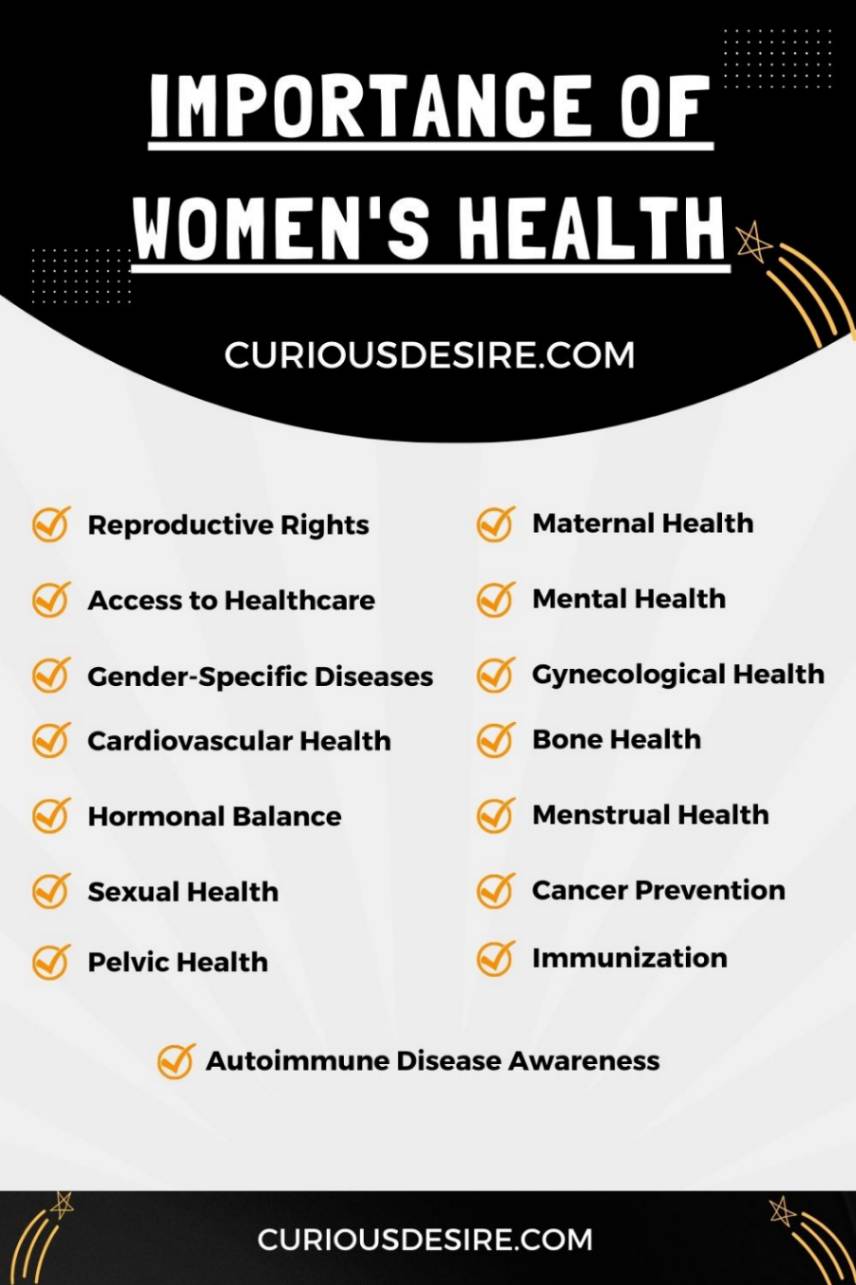1. Reproductive Rights
Reproductive rights are super important because they give women control over their bodies and decisions about whether, when, and how to have kids.
Reproductive rights mean you have access to birth control methods like pills or condoms, so you can prevent pregnancy until you’re ready.
For example, you’re pregnant, but it’s not safe for you or the baby to continue the pregnancy because of health reasons. Reproductive rights mean you have the option to choose abortion if that’s the best decision for you and your health.
So, having reproductive rights means women have the power to make choices that affect their bodies and futures, which is super important for their health and well-being.
2. Maternal Health
Ensuring the well-being of pregnant women and new mothers is not just about their health but also about the health of future generations. Maternal health involves factors, including access to prenatal care, nutrition, mental health support, and obstetric services.
For instance, regular prenatal check-ups allow healthcare providers to monitor the mother’s health, screen for conditions like gestational diabetes or high blood pressure, and provide guidance on healthy behaviors.
Maternal health is not only about physical health but also about emotional well-being. Postpartum depression and anxiety are common challenges that many new mothers face, highlighting the importance of mental health support during the perinatal period.
By prioritizing maternal health, societies can empower women to experience safe and fulfilling pregnancies, promoting healthier families and communities.
3. Access to Healthcare
Access to healthcare is a fundamental human right that has an impact on individuals’ health outcomes and quality of life. For women, access to comprehensive healthcare services is important to address their unique health needs across the lifespan.
This includes preventive care such as routine screenings for breast and cervical cancer, family planning services, maternal healthcare, and management of chronic conditions like polycystic ovary syndrome (PCOS) or endometriosis.
Unfortunately, barriers to healthcare access, such as financial constraints, lack of transportation, and stigma, disproportionately affect women, particularly those from marginalized communities.
When women face obstacles to accessing healthcare, they may delay seeking medical attention, leading to undiagnosed or untreated health conditions.
By removing barriers to healthcare access and promoting policies that ensure equitable access to quality services for all women, societies can improve health outcomes, promote gender equality, and social and economic development.
4. Gender-Specific Diseases
Gender-specific diseases are medical conditions that predominantly affect individuals of a particular gender, often due to biological differences. In the case of women, several diseases and health conditions are unique to or more common among them.
Breast cancer is one such example, with women facing a significantly higher risk of developing breast cancer compared to men. Other gender-specific conditions include ovarian cancer, cervical cancer, and polycystic ovary syndrome (PCOS).
For instance, mammography screening programs can detect breast cancer at an early stage when it is more treatable, potentially saving lives.
Similarly, cervical cancer screening through Pap tests or HPV testing can identify precancerous changes in the cervix, allowing for early intervention and prevention of cervical cancer.
By raising awareness, promoting screening programs, and investing in research and treatment options for gender-specific diseases, societies can improve women’s health outcomes and reduce the burden of these conditions on individuals and healthcare systems.
5. Mental Health
Women’s mental health is crucial for their overall well-being and involves emotional, psychological, and social aspects. Conditions like depression, anxiety, and PTSD can significantly impact their lives, affecting relationships, work, and daily functioning.
For instance, postpartum depression, affecting 10-15% of women after childbirth, often goes untreated due to societal expectations about motherhood.
Accessible and culturally sensitive mental health services, including counseling and support groups, are essential.
These services help women address issues and build resilience. Integrating mental health screening into primary care facilitates early detection and intervention.
6. Gynecological Health
Gynecological health revolves around the comprehensive care of the female reproductive system, extending beyond addressing issues when they arise.
Routine check-ups, such as Pap smears, serve as preventive measures, detecting early signs of conditions like cervical cancer.
These examinations not only ensure the physical health of reproductive organs but also provide an opportunity for education and awareness about reproductive well-being.
By normalizing gynecological health check-ups, societies can contribute to breaking down stigmas and encouraging women to prioritize their reproductive health as an essential component of overall wellness.
7. Cardiovascular Health
Cardiovascular health, focusing on the heart and blood vessels, is a cornerstone of well-being. Lifestyle choices, including regular physical activity and a balanced diet, play pivotal roles in maintaining cardiovascular health.
Beyond individual habits, routine check-ups become key in managing blood pressure and cholesterol levels, preventing potential heart-related complications.
By integrating cardiovascular health education into public awareness campaigns, societies can empower individuals to make informed choices, creating a collective impact on heart health and reducing the prevalence of cardiovascular diseases.



